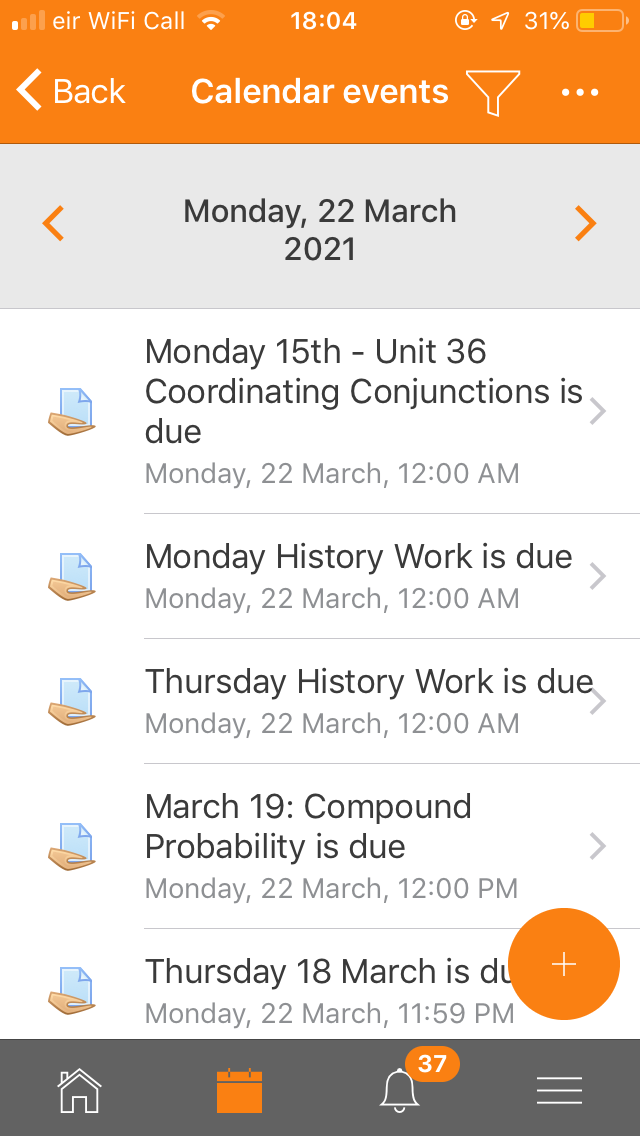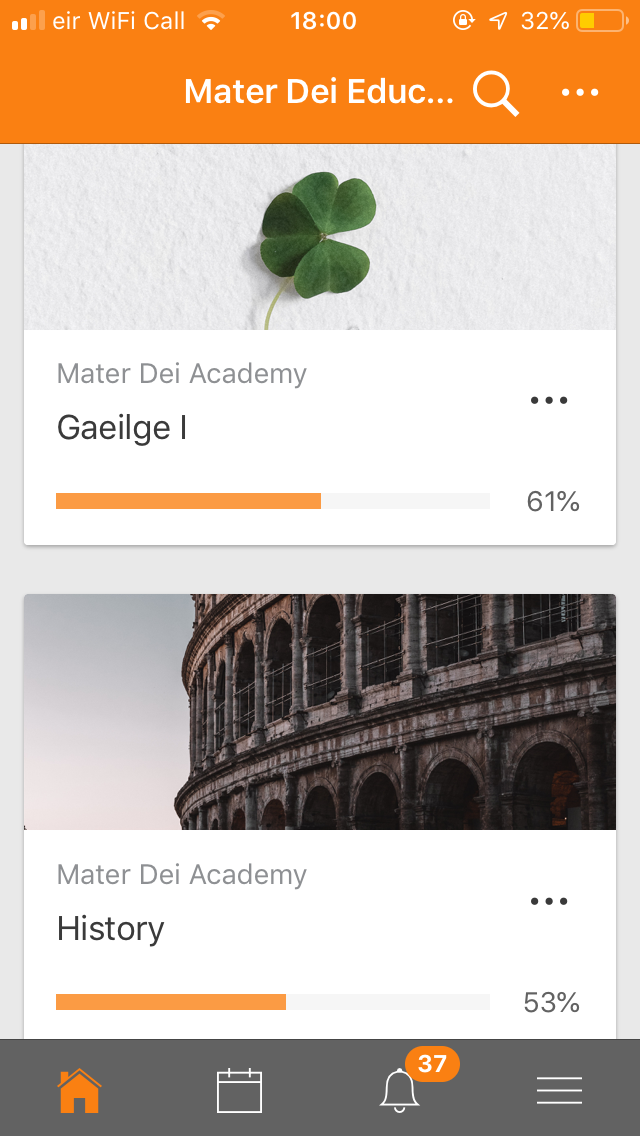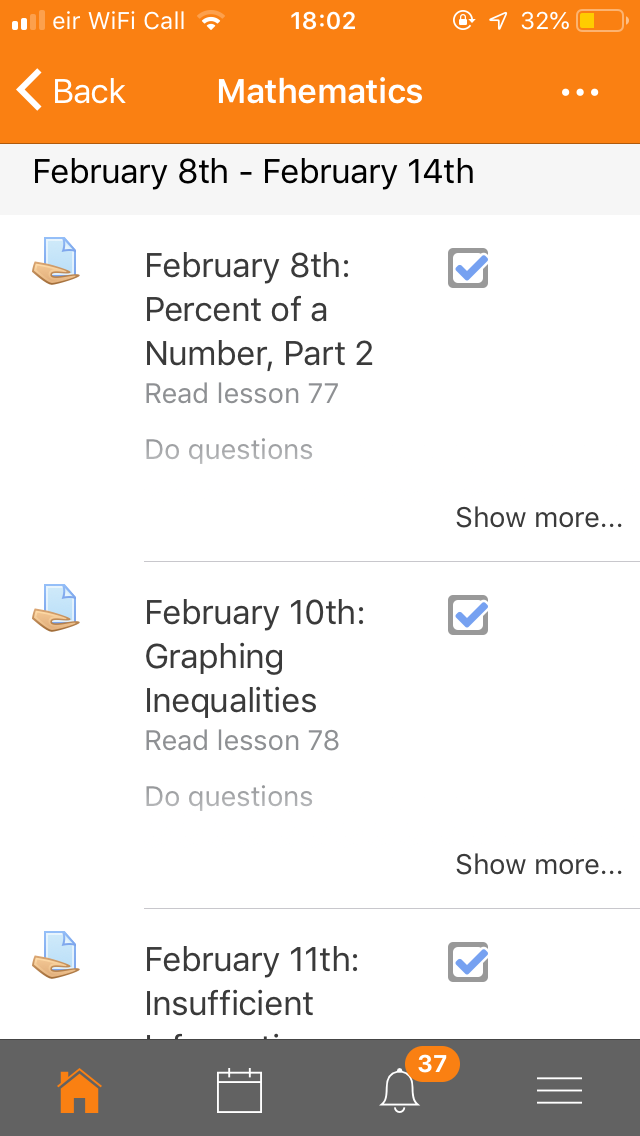Liberal and classical education emphasises the joy of learning for the sake of understanding what is True, what is Beautiful and what is Good. It is an education which is formation for life, rather than formation for work. The curriculum at Mater Dei Education benchmarks to international standardised examinations (IGCSE, DELF and TEG exams). However, this is never at the expense of time for learning, reading, praying and thinking, which are uniquely available to the student at this pivotal moment in his or her life. The four-year classical junior cycle paves the way to the two-year senior programme, culminating in the Irish Leaving Certificate examination. A ‘liberal’ education is the defining formation in educators and great minds who have shaped western education in the preceding centuries. Foremost among these is Saint John Henry Newman, who noted that “certainly, a liberal education does manifest itself in a courtesy, propriety, and polish of word and action, which is beautiful in itself, and acceptable to others; but it does much more. It brings the mind into form,—for the mind is like the body.” The twin pillars of philosophy and theology frame the other subjects and provide the context for a holistic education where the work of God the Creator pervades every aspect of human life; language, science, culture and the arts. The study of language is therefore a natural form of expression in the liberal education, a means for the student to examine their own thinking process and slowly articulate those thoughts in meaningful written and spoken word. The capacity to do this in our native language as well as in the great languages of Europe is developed. The mathematical and scientific worlds are natural extensions of this liberal approach to learning, where the student observes and understands the order and beauty of creation in the context of God’s infinite goodness and love for humanity. History provides the backdrop to understand the society and culture in which we find ourselves while the Fine Arts represent the high-points of human thanksgiving and expression to God the Creator. All is a continuum and each subject matter speaks easily with the other within this holistic understanding of why we learn. Let us pray that this curriculum may inspire our young men and women to follow the wise words of Saint Paul; “Let your minds be filled with everything that is True, everything that is honourable, everything that is upright and pure, everything that we love and admire, with whatever is good and praiseworthy” Ph 4:8
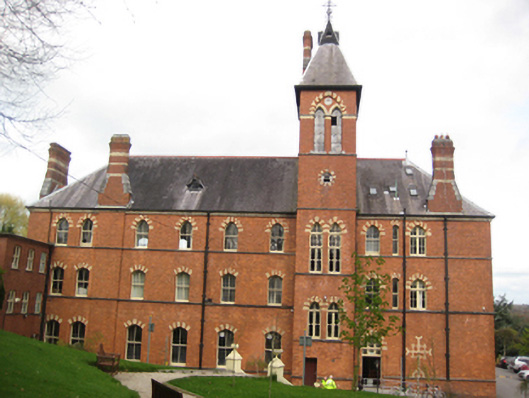
Timeline
The First Year will open in September 2024
The Second Year will open in September 2025
The Third Year will open in September 2026
The Fourth Year will open in September 2027
The Fifth Year will open in September 2028
The Sixth Year will open in September 2029
Curriculum Overview
First, Second, Third and Fourth Years follow the Logic Stage of formation of the classical Trivium and the same excellent education delivered at Mater Dei Academy, which leads the students in Cork to Truth, Goodness and Beauty. At the end of the Fourth Year, the students sit the IGCSE exams in Sciences, English, Maths, and Latin, the DELF exam in French and TEG exam in Irish.
Fifth and Sixth Years are dedicated to the preparation of the Leaving Certificate.
Rigour
Mater Dei Education provides a rigourous curriculum and methodology, and an antedote to the mediocrity often encountered in the education system.
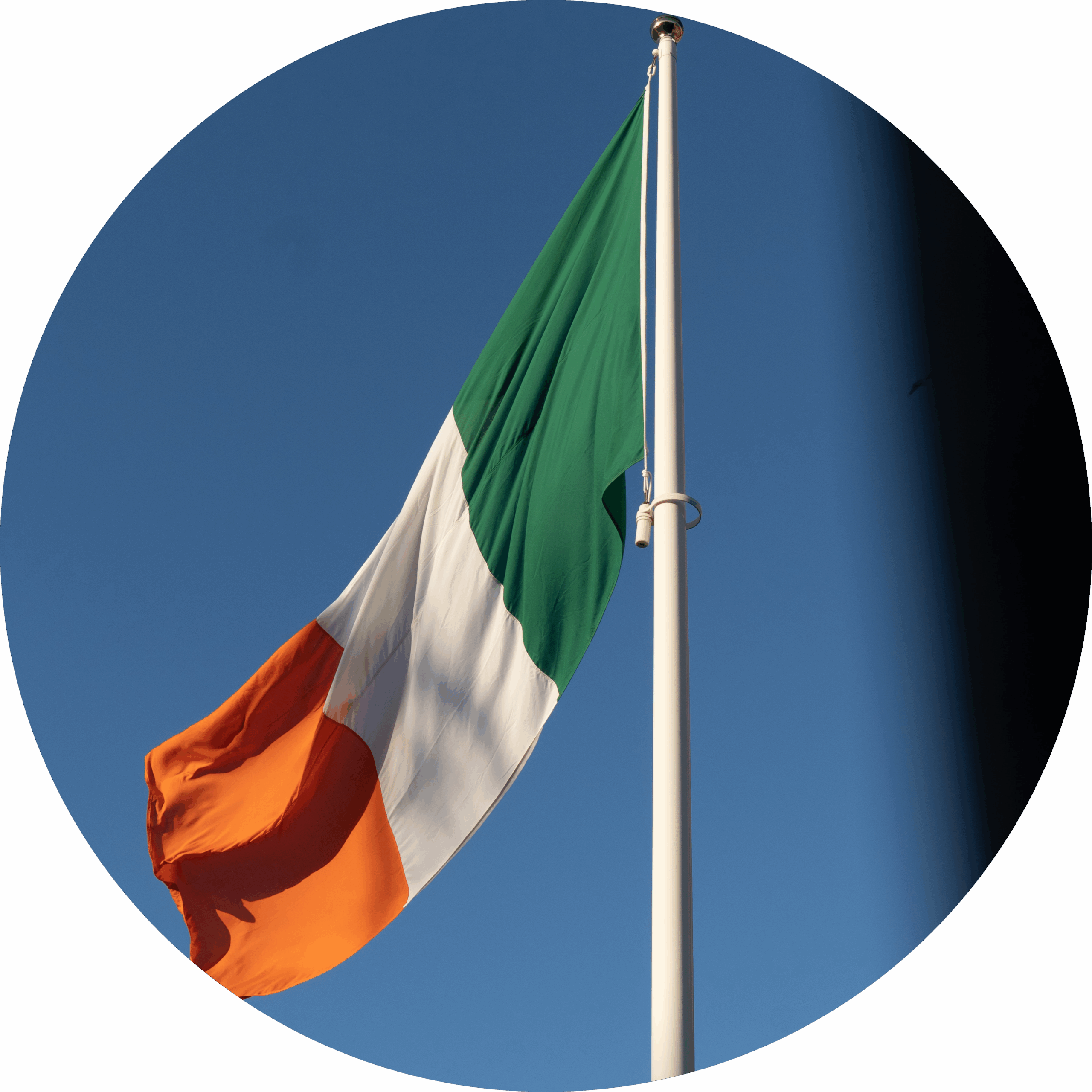
Irish Curriculum
Through the study of the Irish language, Irish history and Irish literature, the students learn about their catholic culture and grow in the virtue of fortitude.
Intertwined Subjects
The teaching of history, literature and art are intertwined. When a time period is studied in history, the same time period is read from and studied through the reading of novels. Likewise, the students study in art appreciation the same time period.
The teaching of English grammar, Latin and Irish grammar are intertwined. Sentence diagramming is an essential part of our English curriculum. The understanding of English sentence diagramming help students master Irish and Latin.
The teaching and understanding of Logic informs the understanding of the student in mathematics and grammar.

Learn to Think
Students study logic in 2nd and 3rd year and philosophy in 4th year. By studying formal logic, the student develops the skills of critical thinking to make sound judgements and arrive at the Truth in all areas of life. The study of philosophy integrates both faith and reason and leads the students to the basic proofs for God’s existence. It also helps the students understand the role of Greek philosophy in the development of Christian thought.
Socratic Seminar
The Mater Dei Education Socratic Seminar books help the students to think and is an integral part of a classical education.
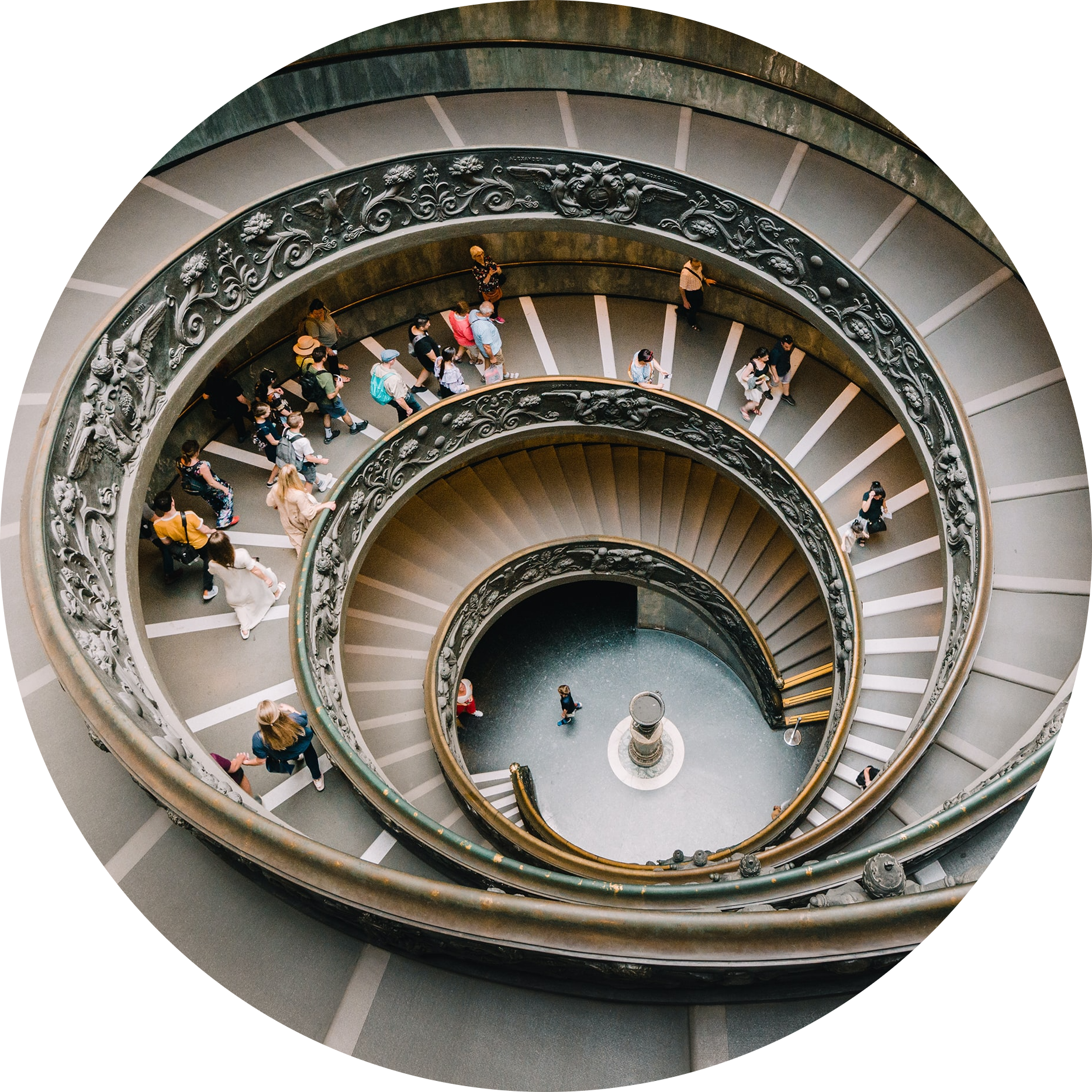
Learn Irish History Chronologically
Mater Dei Education teaches children Irish history chronologically from the time of the arrival of the first people in Ireland to the Good Friday Agreement in 1998. We believe that by knowing our past imprinted by the faith and fortitude of our forefathers, students will be more equipped to face the future.
Spiral Method
Mater Dei Education uses a spiral method in English and Irish grammar as well as in mathematics. Key threshold concepts are constantly revised and reinforced by returning (spiraling) to them in a methodical way.
Curriculum
Mater Dei Education provides a comprehensive six-year programme in the classical tradition, culminating in the Irish Leaving Certificate examination. Our four year junior cycle provides a provides a comprehensive and systematic introduction to liberal education in the classical tradition.
Theology
To know oneself is to know the One who created you. At Mater Dei Education, the Theology programme provides our students with the clear understanding of what we believe as Catholics and prepares them for the great mission entrusted to them through baptism. An outline of the content covered in the Theology curriculum is given below.
Theology I and II
The Theology programme at Mater Dei Education is based on a combination of Sacred Scripture and doctrinal formation. Scripture is the soul of theology. Through encounter with Sacred Scripture, both in the liturgy and in studies, the student encounters the Living God. Ultimately, the Bible transmits the Word of God that saves. Study of the Bible also furnishes the student with an awareness of the development of culture in Western Civilisation and so helps the student to understand their own cultural milieu. Through encounter with the variety of biblical characters; from the Patriarchs to the Prophets; the students enter into a world where the revelation of God’s loving plan of salvation unfolds before our eyes. It is in this plan that each student finds their own place and through their studies, a deeper understanding of their own dignity and unique place in God’s creation.
Theology III
The Four Gospels together give testimony to the culminating events in Salvation History; the life, death and resurrection of Jesus Christ. The Gospels are the central books of the bible providing the student with the keys to unlocking the stories of the Old Testament as well as providing a witness to the Way, the Truth and the Life that the apostles and disciples of Jesus would later carry into the world. As a proclamation of God’s kingdom, the Gospels bring about a personal encounter between the student and Jesus Christ, the Saviour of the World. The Gospels are not taught as museum pieces but as living documents, read and studied through the eyes of faith, overlapping with the liturgical services in which the students participate. Knowledge of the Gospel texts provides students with an understanding of the religious and social culture which they have inherited. The Apologetics section makes the student sensitive to misreading of Sacred Scripture and the need for criteria for interpreting the sacred text and instructs the students in how to dialogue with love and respect in the service of truth.
Theology IV
The Church by its nature has a universal and a local dimension. Therefore, by including the History of the Church in Ireland within the history of the Church Universal, giving students a knowledge of Irish saints, customs and devotions, the students attain a tangible sense of the Church to which they belong and, from this, enhance their own Catholic identity. The student sees how the History of the Church, with all of its ecclesial and political tensions, is merely a playing out of theological disagreement through which the Holy Spirit leads the Church into all truth (c.f. Jn 16:13). The section on the History of the Church, which follows seamlessly from the Acts of the Apostles and the Letters, confirms the nature of the Church as the People of God on pilgrimage, often difficult, towards its perfection which will be finally attained at the Second Coming of Christ.
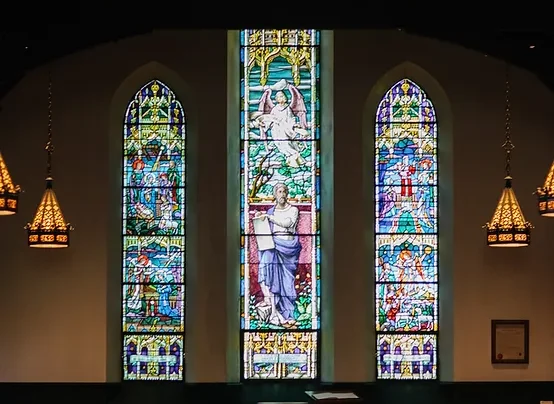
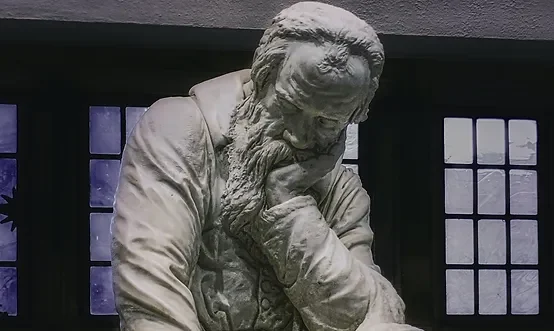
Philosophy
At Mater Dei Education, we aim to provide every student with the tools to think and to articulate those thoughts. Inspired by over two millenia of classical teaching and learning, our Philosophy programme teachers these tools. An outline of the content covered in the philosophy curriculum is given below.
Philosophy I
The more human beings know reality and the world, the more they know themselves in their uniqueness, and with that there presses upon them the urgent desire to find out the meaning of reality and of our existence.’ Our experience of the world awakens in us ‘the fundamental questions which pervade human life: Who am I? Where have I come from and where am I going? Why is there evil? What is there after this life?… In fact, the answer given to these questions decides the direction which people seek to give to their lives.’ (St. John Paul II, Fides et Ratio). The first year of Philosophy invites students to join the millennia long tradition in the search for truth. Students are invited to enter into this search, to learn not simply about philosophy but how to do it. They learn by asking these fundamental questions for themselves.
Philosophy II
Is the soul immortal? How should a human society be governed? What things actually exist? What is virtue? These questions and many more were first posed in recorded history by Socrates, Plato, and Aristotle and the world has never been the same since. This course invites students to enter the discussion in the quest for what is True, Good, and Beautiful. Indeed, the thought of Plato and Aristotle sets the stage for not only Roman and Medieval culture but all of Western civilisation. The monumental achievements of Aquinas in synthesizing this ancient understanding of nature and existence with the Christian tradition provides a window into the many ways in which the Ancient World anticipates the greatest event in history.
Philosophy III
‘There is one thing stronger than all the armies in the world, and that is an idea whose time has come’ (Victor Hugo). The impact of ideas on society is critical to understanding the world that we live in. At the intersection of philosophy and the human experience, particularly in the context of human experience in communal society, is a fascinating and enlightening confluence of Faith, reason and logic. This year’s programme in philosophy explores this confluence which can often be at variance with the Christian ideal but which clearly enables the student to grasp the importance, the influence and the impact of ideas and philosophies on our modern society, for good or for evil.
Philosophy IV
Studying the origin of political thought and its implementation on a large scale allows us to develop an awareness of political philosophy’s enormous influence in modern times. This adds both philosophical and historical depth to our understanding of past events and allows us to respond properly to the challenges that await us in the future. If there is any lingering doubt that philosophy is practical in the “real world,” this course will dispel that doubt quickly. In fact, studying political philosophy allows modern politics to come into a new focus and can help enkindle a desire to engage the world and build the ‘City of God’ like never before.
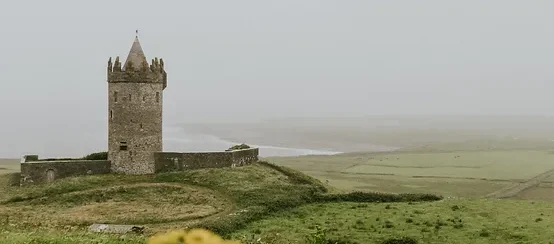
Gaeilge
Gaeilge I
Tír gan teanga, tír gan anam,’ a dúirt an Phiarsach agus tá an ráiteas chomh fíor inniu is a bhí sé inné. Tá fréamhacha doimhne na Gaeilge fite fuaite le hoidhreacht agus cultúr Críostaí na hÉireann. Cuireann fiú na beannachtaí is simplí ar nós ‘Dia duit’ agus ‘Dia linn’ béim ar thionchar urghnách na Críostaíochta ar an nGaeilge agus ar thionchar dochreidte na Gaeilge ar fhoirmiú chreideamh mhuintir na hÉireann ar feadh na gcéadta bliain. Murab ionann agus a macasamhla Béarla, tá áilleacht, ceol agus ord uile a fhréamhacha Laidine sa Ghaeilge. Is í an Ghaeilge croí dosheachanta ár gcultúir, ár n-oidhreachta, ár staire agus ár náisiúin. Is mór an fhreagracht í a labhairt chomh cruinn agus is féidir. Ba mhór an cúnamh é chun líofacht a chothú an Ghaeilge a bheith mar theanga chaidrimh san Acadamh go coitianta. Mar a deirtear, ‘Is fearr Gaeilge bhriste ná Béarla cliste’
Gaeilge II
‘Indiaidh a chéile a thógtar na caisleáin.’ Le linn na bliana seo, leanaimid den obair mhall, shaotharach i dtreo mháistreacht na Gaeilge. Tógtar am, fuinneamh is foighne chun na naisc láidre idir rialacha Laidine agus rialacha na Gaeilge a thuiscint. Ach le tuiscint chumasach ar struchtúr agus ar chomhréir na teanga, eiríonn leis an mac léinn, diaidh ar ndiaidh, le misneach is muinín, teanga a sinsir a labhairt agus a scríobh. I ndeireadh na dála, bíonn an mac léinn in ann Gaeilge labhartha a thuiscint le toil agus bíonn sé réidh le bogadh ar aghaidh go dtí an chéad chéim eile; máistreacht na scríbhneoireachta.
Gaeilge III
De réir mar a éiríonn an mac léinn níos líofa agus níos muiníní sa teanga, feabhsaíonn a chumas scríbhneoireachta. Tá an mháistreacht seo ar an bhfocal scríofa ríthábhachtach do ghrá fadtéarmach na teanga. Ligeann sé freisin don mhac léinn teagmháil a dhéanamh leis an domhan thart timpeall trína theanga dhúchais. Mar fhocal scoir, is buntáiste é a bheith ábalta cuid den mhórfhilíocht sa Ghaeilge a mheabhrú agus a aithris, a fhanfaidh leis an mac léinn go deo.
Gaeilge IV
Is cuid nádúrtha den fhoghlaim teanga é botúin a dhéanamh agus is cinnte go dtagann deacrachtaí chun cinn le linn d’fhoghlaimeoirí a bheith ag iarraidh an teanga a úsáid. Cabhraíonn straitéisí cumarsáide leis na mic léinn a bheith níos éifeachtaí agus iad ag caint, mar go mbíonn siad ag pleanáil na rudaí atá le rá acu. Coinneáiltear súil ar conas atá ag éirí leo agus glactar céimeanna le rudaí a cheartú nuair a thagann fadhbanna chun cinn. Cabhraíonn straitéisí cúitimh leo teacht slán nuair a bhíonn bearnaí ina gcuid eolais a chuirfeadh bac ar an gcumarsáid. Faoi dheireadh na bliana, beidh an mac léinn muiníneach leis an nGaeilge thar aon ábhar eile.
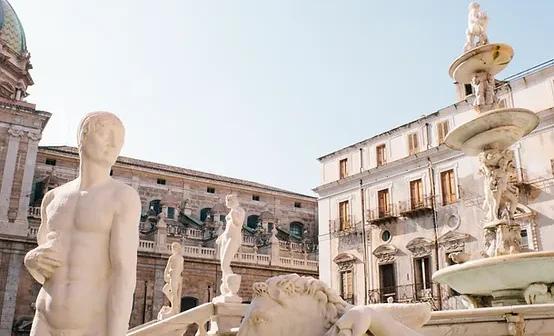
History
History I: The Ancient World
Modern society is shaped and formed by many of the events and systems which emerged in the Ancient World. Even today, the Ancient World influences our customs, laws, and forms of government in innumerable ways. It shapes the form and function of the buildings we live in, the writing we use to communicate on a day-to-day basis and the governments and institutions of western society. These civilisations and the questions they confronted remain as relevant today and teach us a great deal about our own culture. In the Irish context, an understanding of our Celtic and pagan forefathers provides a unique insight into the world and civilisation into which St. Patrick brought the Christian faith. Ancient history not only provides insight into human nature, but also provides a proper context for the most important event in history, the incarnation of Jesus Christ.
History II: The Christian World
The early Christian era and Middle Ages are an organic continuation from the history of the Ancient World. This year’s programme will allow students to deepen their understanding not merely of the period studied but the fascinating periods which follow. This era was pivotal in the history of Ireland when its monks rekindled the flames of learning throughout Europe. By studying the peoples and cultures that shaped Ireland’s past, this year’s programme provides the tools to properly interpret and understand the subsequent centuries of our nation’s history. Students will discover that the historical events and people of the Middle Ages have much to teach us about how to live and flourish in our own contemporary society.
History III: The Renaissance World
The sixteenth to eighteenth century presents a pivotal period in Irish and world history which provides a fundamental understanding of our nation’s past. In this age, students meet and understand the pivotal figures of Anglo-Irish history such as the Hugh O’Neill, Queen Elizabeth I, Sarsfield, and Cromwell; figures who shaped and formed the history of subsequent centuries. The Renaissance and early Modern period continue the transformation and development of Western culture in Europe and help us to understand our own world and culture today. We also encounter the foundations of the modern nation-state and the political structures that we may take for granted as well as the religious ideas that still profoundly impact us today.
History IV: The Modern World
An understanding of modern history is a minimum requirement to make sense of the world around us. In the Irish and European context, the exit of Britain from the EU placed a new focus on the enduring consequences of Ireland’s troubled twentieth century. The Modern History programme places the last two centuries in the context of what has gone before. It is a period where often stark distinctions emerge between good and evil. Yet, it is only by in-depth study of these events and personalities from the past that we can we hope to assimilate the good and reject the evil in our Modern World.
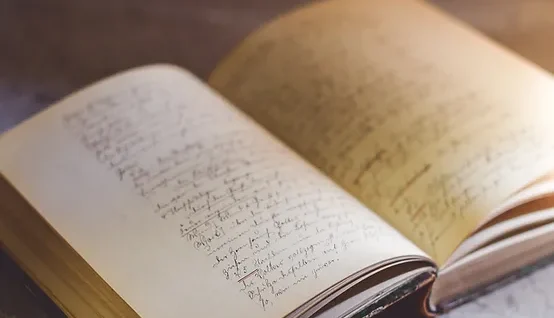
English
The junior cycle English programme provides our students with a fundamental introduction to grammar and writing, as well as a fascinating mix of works from Irish and international authors and poets. An outline of the content covered in the junior cycle English curriculum is given below.
English I: The Ancient World
The nineteenth century Anglican Archbishop of Dublin and poet, Richard Trench, remarked that ‘grammar is the logic of speech, even as logic is the grammar of reason.’ It is inconceivable to embark on a programme of reading the great books and stories of Western Civilisation without the tools for the journey. This year’s programme, not only provides the student with a solid basis for the subsequent years, but also provides the cornerstone on this all other narrative subjects, writings and discussions are founded. In literature, students encounter the great heroes and characters of the past as real-life personalities whose challenges and travails mirror those of our present time in more ways than we can possibly imagine. Ancient literature forms the foundation for Western literary and intellectual tradition that continues to our own day; it provides much of the essential framework for making sense of people, events, and movements throughout the following centuries.
English II: The Christian World
The great play has a pivotal role in the history and literature of the Western World. Understanding the context, construction and characters of the great plays furthers the students’ in-depth dexterity with the English language in its varied forms of verbal. While building upon the previous foundational work, this year’s programme places an emphasis on appreciation and understanding of different genres, periods and styles of writing across the centuries. The comparative analysis of different works is introduced and develops the individual’s ability to form considered opinions of the works in their historical context and meaning. Finally, the influence of Christian thinking and writing is clearly evident across the works studied, emphasising the enduring influence of the Christian tradition on subsequent Western philosophy and thought.
English III: The Renaissance World
The bridge from grammatical precision to articulate writing and speaking is a gradual transition. This year’s programme is a catalyst to that transition where the foundational preparation of the preceding years is moulded into written and spoken form. Students grow in confidence and maturity of language as they address eternal themes of love and fortitude in the context of the great literary masterpieces. The poetry programme, in particular, offers the students a unique insight into the fascinating metaphysical understanding, bridging the students‘ understanding between the physical reality of God’s creation and the metaphysical reality of His hand in action beyond the visible world.
English IV: The Modern World
As the culminating year of junior cycle English studies, this year’s programme brings the student face-to-face with the Modern World. The student encounters new styles of written expression and explores enduring themes of conflict and loss. It is a study which challenges the student to examine closely the content presented and to look beyond the obvious to the hidden and the implied. The murky reality of man’s fallen nature is explored in critical light. Through thoughtful examination and reasoned learning, the student is empowered to better understand man’s potentiality to act with evil, despite his eternal call to goodness, in the context of rich literary characters; both modern and ancient.
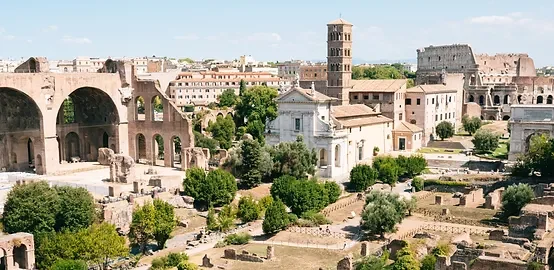
Latin
Latin is the fundamental cornerstone of modern European languages and introduces our students to the structure of language. An outline of the content covered in the junior cycle Latin curriculum is given below.
Latin I
Latin is the language of Western civilization and of Our Holy Mother, the Church, and so many pivotal writings — philosophical, theological, literary, and scientific — were originally composed in Latin. Translations of these works exist of course, but even the most exquisite translations are unable to encapsulate the original in its entirety. Our goal then is not to produce translators, but readers of Latin who love the language. We want our students to understand the text on its own and to appreciate the truth, beauty, and goodness of Latin in its native form.
Latin II
In the second year of Latin study, the language becomes more alive as students develop the ability to read longer and more complex sentences using a greater variety of tenses and verbal forms.
Latin III
While it is possible to achieve a basic working knowledge of Latin in only two years, it takes more study to reach the point of being able to read even the simplest classical Latin texts in their original form.
Latin IV
Continued and consistent use of Latin, or any language for that matter, is important if one hopes to retain and improve upon what has been learned during the previous years of study. This fourth-year course allows students to dive much deeper into primary texts that may have been studied earlier in English translation. By studying works in their original languages these texts take on new meaning as students are able to immerse themselves more fully into the culture and thought of the author.
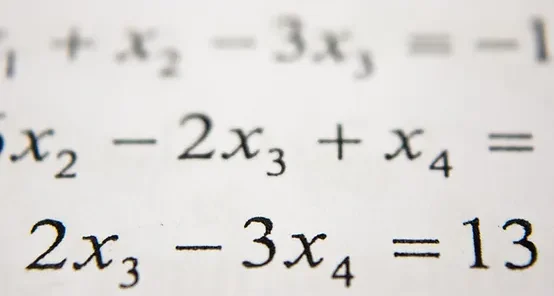
Mathematics
An outline of the content covered in the junior cycle mathematics curriculum is given below.
Mathematics I: Algebra
The Italian scientist, Galileo Galilei claimed that “mathematics is the language in which God has written the universe.” The fundamental beauty, order and reasonableness of mathematical deduction is not simply critical for advanced mathematical and scientific understanding, but plays a foundational part in logical thought and deduction outside of the field of mathematics. As well as framing and forming the mind in logical deduction and reasoning, mathematics is the language which allows the student to deepen their understanding of the physical and chemical sciences in subsequent years. Ultimately, it is the goal of the mathematics programme to lead the student to a love of mathematics as a reflection of the order and perfection found in the Creator.
Mathematics II: Geometry
Geometry is a cornerstone in the understanding of beauty, symmetry and form in a wide range of disciplines. A clear understanding and perception of geometric principles introduces the student to the appreciation of form and order in the natural world of God the Creator, as well as the human fields of art, architecture, engineering, science, biology, chemistry and physics.
Mathematics III: Trigonometry
Through the tools of proof we are able to demonstrate the interior logic of a mathematical system and its correspondence to reality. This is particularly evident in trigonometry, where this logic find ample application in the fields of science, business, engineering, and medicine.
Mathematics IV: Pre-calculus
The final year of the mathematics programme brings the student’s understanding of Euclidian algebra and geometry to a mature understanding of mathematical reasoning in modern physics and mathematics. The basic understanding of sequences, series, limits, and mathematical induction transition seamlessly into both calculus and statistics requirements of the Leaving Certificate programme.
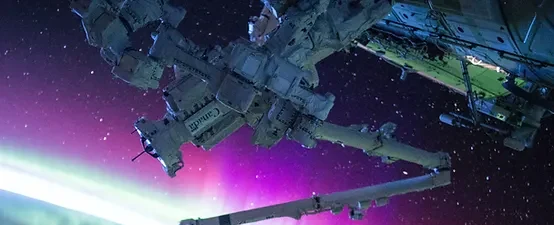
Science
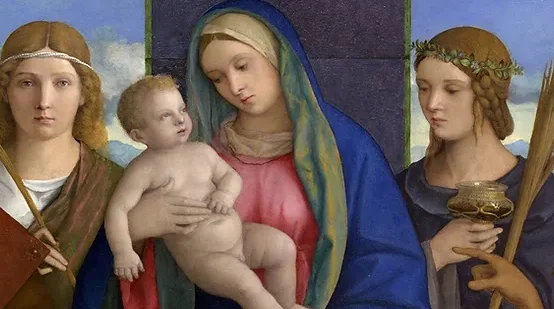
This year’s course builds on the solid foundations of observation, drawing and the elements of art studied in year 1. Through this year’s exploration of colour, we are building towards next year’s focus on oil painting and completing their own paintings. Exercises based on study of Celtic and Christian art – illuminated manuscripts, high crosses, knotwork, mosaics and icons – will assist the students in contemplating the changes that took place when the Ancient world gave way to the Christian world, and artists began seeking to evoke spiritual realities.
This course will help the students to gain an understanding of the importance of art and imagination in the Christian tradition. As John Henry Newman tells us, man is more than just a ‘reasoning animal’. The expression of beauty, goodness and truth in art helps to build our faith. Christianity, Newman says, addresses people ‘both through the intellect and through the imagination’ and in this way we come to faith through arguments that are ‘too deep for words’.
Art III
The knowledge and appreciation of colour and form assist us in appreciating the wonder of God’s creation. The study of the Renaissance, that great era of discovery and human development, builds our appreciation of the dignity and capacities of man; God’s greatest creation. Students learn about the potential of art to evoke the wonder of creation and the mysteries of the spiritual world. Learning about great works of this period – Michelangelo’s Sistine Chapel ceiling, and the work of great masters such as Carravagio, Velazquez, Franz Hals, Rembrant and Vermeer will help us appreciate the critical contribution of the visual arts in the development of human civilisation and culture. This year’s work opens the student to wonder before the beauty and perfection of God’s creation and our part in continuing and echoing His work of Creation. In the words of St John Paul the Great, ‘Through his “artistic creativity” man appears more than ever “in the image of God”.’
Art IV
The Modern era is one of great change in the world of art and culture. Through the birth of Cubism and photography, art was changed forever. Through learning about the game-changing artistic discoveries of Turner and Manet, and the explosion of diverse forms of artistic expression such as performance art, installation, sound based art and conceptual art, students will gain an understanding of the culture they have inherited, and how to engage with it.
As Christians and especially as Catholics, it is critically important to understand this era in which secular culture really began, and in which ideologies such as atheism, fascism and communism impacted world history in such far-reaching and often devastating ways. Students have the opportunity to consider and to understand the art and society of the contemporary world, and this will equip them to engage with and transform the culture, and to become, as John Paul said, the ‘saints of the new millennium.’
Electronic detailed lesson plans are provided to all enrolled families. These lesson plans are a breath of fresh air for the busy homeschooling parent. They encourage autonomous work. All the work is laid out for 4 days a week, 32 weeks a year. They are available from Junior Infants to sixth class. Starting with first class, the child can work independently on his or her own while the mum or dad is looking after the younger children. They are also entirely flexible. The first part of the lesson plans explains how to teach your child using each book and are filled with pedagogical insights.
- 4 days a week daily lesson plans.
- Flexible
- Available on our App and our parent portal
- Personalised to suit the level of your child in every subject.
- Irish recordings on the App and parent portal
- Pedagogical insights

Our Moodle App
